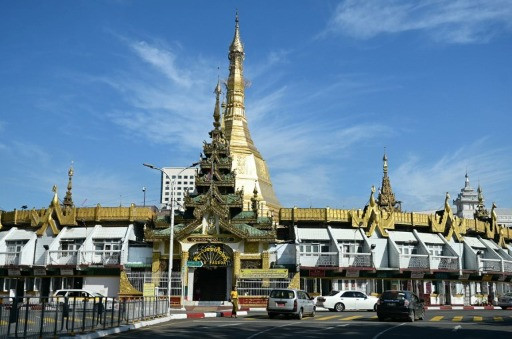Corruption: It's contagious!
US companies maintain their optimism about growth prospects and commercial opportunities in ASEAN countries. However, the survey also indicated that corruption continues to be a major concern for US companies considering expanding their businesses in Indonesia.
Change Size
 Constitutional Court judge Patrialis Akbar leaves a press conference after being quizzed by investigators of the Corruption Eradication Commission (KPK) for alleged bribery case on Jan 27 in Jakarta (Antara/Muhammad Adimaja)
Constitutional Court judge Patrialis Akbar leaves a press conference after being quizzed by investigators of the Corruption Eradication Commission (KPK) for alleged bribery case on Jan 27 in Jakarta (Antara/Muhammad Adimaja)
I
n the recently released 2016 Corruption Perception Index Indonesia was ranked 90th out of 176 countries surveyed, which is a slight drop from last year’s rank of 88th. Many anticorruption scholars view this as still indicating a slow progress in Indonesia’s antigraft bureaucratic and legal reforms.
When the ASEAN Economic Community (AEC) was launched at the end of 2015 many expected it to provide greater benefits, such as market expansion and efficiency for businesses. On the other hand, this also means that every country in the region has to be ready for tougher competition, which demands they continuously cultivate their competitiveness.
One of the major factors that drives inefficiency in businesses is the excessive spending on things unrelated to their operations, such as “bribery expenses” to make things happen or to speed things up with administrative matters. This is why a country plagued with corruption will always be unattractive to foreign investors.
Corruption has been known to diminish a country’s competitiveness, in particular because of the resulting business uncertainty. For example, according to the 2017 Business Outlook Survey by AmCham Singapore and the United States Chamber of Commerce, US companies maintain their optimism about growth prospects and commercial opportunities in ASEAN countries, including Indonesia. Based on the survey, 38 percent of respondents believe that Indonesia will continue to be a priority market for future business expansion.
However, the survey also indicated that corruption continues to be a major concern for US companies considering expanding their businesses in Indonesia. The survey revealed that Indonesia is one of two countries (the other being Cambodia) with a 73 percent dissatisfaction rate regarding the “lack of corruption” factor, which is the worst in the ASEAN region.
Recently, the naming of former Garuda Indonesia president director Emirsyah Satar as a graft suspect by the Corruption Eradication Commission (KPK) has once again reminded us about the seriousness of corruption in Indonesia and abroad.
According to the KPK’s statement, Emirsyah was suspected of accepting bribes related to the purchase of aircraft engines from the United Kingdom company, Rolls-Royce.
The case is said to involve millions of US dollars. Even more interesting is the fact that the UK Serious Fraud Office (SFO) has recently released several documents to the public pertaining to bribery allegations involving Rolls-Royce in several countries and in which the Garuda Indonesia case is given meticulous attention.
In the document entitled “Deferred Prosecution Agreement — Statement of Facts — SFO v Rolls-Royce PLC” it is mentioned that there have been indications that a “conspiracy to corrupt” had taken place between 1989 and 1998 in relation to the procurement of RR Trent 700 engines for six Airbus A330 aircraft.
A number of law enforcement agencies in several countries are also currently conducting investigations into the alleged corrupt practices at Rolls-Royce.
During the New Order era under president Soeharto corruption was pretty much like a franchise controlled by a small group of people. Corrupt foreign companies could easily identify key parties they needed to deal with to enter the Indonesian market and pay bribes accordingly.
With the current decentralized system bribery becomes trickier than ever for foreign companies, as identifying the right parties to bribe can be anything but easy for them. Over the decades there have been a number of foreign companies allegedly involved in corrupt acts in Indonesia.
However, many believe that these companies, or at least some of them, may not have the intention to engage in corrupt acts in the first place, but then ended up being part of the nation’s corruption problem.
Referring to the differential association theory, corruption is not something that people are born with as it must be learned over time, in particular through interactions with other people. Many anticorruption experts view the learning process as a slippery slope on which initial individual corrupt practices become institutionalized over time.
At the same time perpetrators also need to learn how to rationalize their corrupt acts so as to avoid the resulting guilt. “Everybody is doing it”, “Nobody gets hurt” and “Just following orders” are examples of excuses used to justify corrupt acts.
Simply put, corruption is contagious. The “wheeler-dealer” type of foreign businessmen who are willing to do anything to win government contracts will eventually pick up some knowledge on how to perpetrate corrupt acts effectively in Indonesia from interacting with corrupt public officials and may then institutionalize it within their organizations.
Many observers believe that foreign companies that wish to invest in Indonesia need to master the art of building connections with the right officials to get through the thick layers of bureaucracy.
However, in doing so some of them are willing to cross the line and engage in corrupt acts such as bribery. For example, according to the SFO’s statement of facts, part of Rolls-Royce’s business strategy in Indonesia in 1989 was to build relationships with influential people who had close connections with the State Palace, supposedly to gain influence and intelligence at all levels through any means necessary.
The problem of institutionalized corruption starts with the “bad apple” (or “bad bushel”), when a single individual (or a small number of individuals) condones and perpetrates corrupt acts and over time everybody in the organization accepts corruption as part of their normal day-to-day activities (i.e. the “bad crop”).
The “bad crop” problem also means that the knowledge of corruption becomes ingrained so deep in both organizational and individual memories that ordinary punishment-oriented approaches will not be effective any more in solving the problem.
For this, changes must be made in all aspects of the organization including leadership, culture, structure, norms and values, just to name a few, to ensure that corruption is stamped out for good and public trust can be regained.
---------------
We are looking for information, opinions, and in-depth analysis from experts or scholars in a variety of fields. We choose articles based on facts or opinions about general news, as well as quality analysis and commentary about Indonesia or international events. Send your piece to community@jakpost.com. For more information click here.









